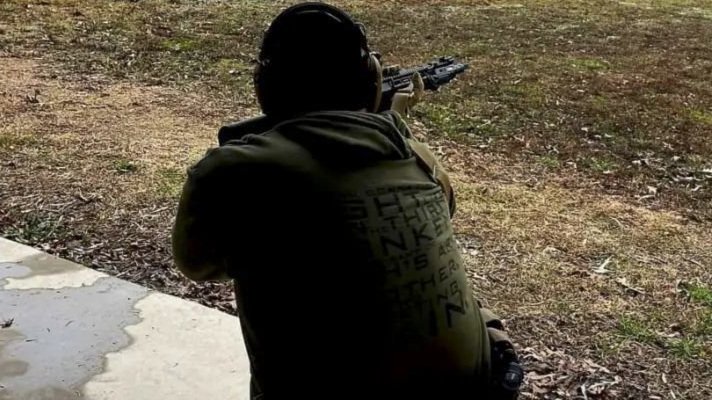
Carbine 2
Practical Application of Carbine Fundamentals in a Tactical Environment
Disclaimer: This course is designed for the student who has graduated the fundamentals course and is wanting to further refine their skillset. Please see the prior course description and if you are not comfortable with the skill sets laid out in the Carbine 1 course it would be good to visit that period of instruction. This course will be the precursor for CQB, Vehicle and Small Unit Tactics.
The period of instruction is one day. Students will further apply "The Basics" but in an expanded fashion. Targets will be engaged out beyond 100 meters at various distances. Close quarters shooting will be refined. The student will learn how to retain, compress, shoot from the various ready positions, pivot and move in and around people and obstacles, shoot while moving, transition shoulders, transition rifle to sidearm, and introduced to the VTAC barrier.
This course is taught by Special Operations Veterans. This course employs performance-based outcome training methodology. It is evidence-based practices learned in the most demanding environments on the globe. These skills are refined to a practical level for the student and are applicable to Military, Law Enforcement, Security Personnel, and Responsible Civilians. Please come with a ready to train mentality. Bring lunch, water and clothes/shoes appropriate for an active day at the range.
Minimum equipment is Carbine with iron sights and two-point sling, two magazines, and 300 rounds of ammunition. The course is based off of the M4 Carbine/AR platform. Optics are welcome and encouraged. Battle belts are highly encouraged, and any other kit is welcome also. IFAK will be mandatory. Please bring a holstered sidearm and 50 rounds of ammunition. electronic ears and eye protection.
We are looking forward to training with you.
Practical Application of Carbine Fundamentals in a Tactical Environment
Disclaimer: This course is designed for the student who has graduated the fundamentals course and is wanting to further refine their skillset. Please see the prior course description and if you are not comfortable with the skill sets laid out in the Carbine 1 course it would be good to visit that period of instruction. This course will be the precursor for CQB, Vehicle and Small Unit Tactics.
The period of instruction is one day. Students will further apply "The Basics" but in an expanded fashion. Targets will be engaged out beyond 100 meters at various distances. Close quarters shooting will be refined. The student will learn how to retain, compress, shoot from the various ready positions, pivot and move in and around people and obstacles, shoot while moving, transition shoulders, transition rifle to sidearm, and introduced to the VTAC barrier.
This course is taught by Special Operations Veterans. This course employs performance-based outcome training methodology. It is evidence-based practices learned in the most demanding environments on the globe. These skills are refined to a practical level for the student and are applicable to Military, Law Enforcement, Security Personnel, and Responsible Civilians. Please come with a ready to train mentality. Bring lunch, water and clothes/shoes appropriate for an active day at the range.
Minimum equipment is Carbine with iron sights and two-point sling, two magazines, and 300 rounds of ammunition. The course is based off of the M4 Carbine/AR platform. Optics are welcome and encouraged. Battle belts are highly encouraged, and any other kit is welcome also. IFAK will be mandatory. Please bring a holstered sidearm and 50 rounds of ammunition. electronic ears and eye protection.
We are looking forward to training with you.
Building on Level 1 Skills with Focus on Third-Party Protection and Team Tactics
Taking our Carbine 1 course is required
Our Carbine 2 class provides comprehensive training that advances your carbine skills and tactical knowledge. Through hands-on practice and expert instruction, you will learn how to protect others and work effectively within a team, enhancing your overall defensive capabilities.
Topics Covered:
1. Review of Level 1 Skills: Begin with a quick review of Carbine 1 skills to ensure a solid foundation. This includes safety protocols, basic handling, shooting positions, and fundamental tactics.
2. Advanced Shooting Techniques: Learn advanced shooting techniques that improve accuracy and efficiency. This includes rapid target acquisition, controlled pairs, and shooting from unconventional positions.
3. Third-Party Protection: Develop skills to protect others in various scenarios. Learn techniques for positioning, movement, and engagement that prioritize the safety of third parties, whether they are family members, colleagues, or bystanders.
4. Team Tactics: Gain proficiency in working as part of a team during defensive operations. This module covers communication, coordination, and tactical maneuvers that enhance team effectiveness and safety.
5. Cover and Movement: Improve your ability to use cover and move effectively under fire. Learn advanced techniques for utilizing available cover, moving between cover points, and maintaining situational awareness.
6. Low Light/No Light Operations: Expand your skills in low light and no light environments. Practice using weapon-mounted lights and handheld lights, and understand how to navigate and engage targets in low visibility conditions.
7. Stress Management and Decision Making: Enhance your ability to manage stress and make quick, informed decisions in high-pressure situations. This includes drills and scenarios designed to simulate real-world stressors.
8. Scenario-Based Training: Engage in realistic, scenario-based training exercises that challenge your skills and decision-making. These scenarios simulate potential real-life situations, providing valuable experience and confidence.
We do not offer refunds for cancellations but we will offer to move your fee to a future course within 60 days.
